'All gas, no brakes': In Wisconsin Senate race, students key to final push for votes
- Oops!Something went wrong.Please try again later.
- Oops!Something went wrong.Please try again later.
Until this year, Cameron Knoll never thought about midterm elections; she cared about presidential elections, and "that's it."
But when the Supreme Court reversed Roe v. Wade in June, eliminating the constitutional right to abortion, she felt something had to be done.
The first political rally she attended was headlined by Lt. Gov. Mandela Barnes, now the Democratic nominee in Wisconsin's Senate race. After hearing Barnes speak and meeting him, Knoll decided to get involved with his campaign.
"It was like, I definitely want to volunteer for him and give some time for him," said Knoll, 21, a senior at the University of Wisconsin, Milwaukee. "This is worth it."
A week out from Election Day, the Barnes campaign is counting on other young people feeling the same way.
"People are looking for elected officials, for representatives, who actually get what they're going through, who understand their struggles – people who don't make excuses for everything that's gone wrong," Barnes, who would be the second millennial elected to the U.S. Senate, told USA TODAY in an interview. "Young people don't have the luxury of sitting around and having people say nothing can be done when their entire future is on the line."
Students are central to the final push in Barnes' race against Republican incumbent Sen. Ron Johnson in one of the nation's most closely watched races.
With control of the Senate down to a coin toss, the loss of a single Democratic seat could cost the party its 50-50 majority with Vice President Kamala Harris' tiebreaking vote, while reversing just one Republican seat could allow Democrats to retain majority rule.
In Wisconsin, a true battleground state, voters handed a win to Joe Biden by less than 1% in 2020 – and to Trump in 2016 by the same margin. In what could be a similarly narrow match-up this November, young people could make all the difference, experts told USA TODAY.
Gen Z vote: Roe is gone, student debt is piling up and young people are mad. But will they vote?
Wisconsin Senate race: The debates are done. Here's what to expect in the final weeks of the Mandela Barnes-Ron Johnson Wisconsin U.S. Senate race
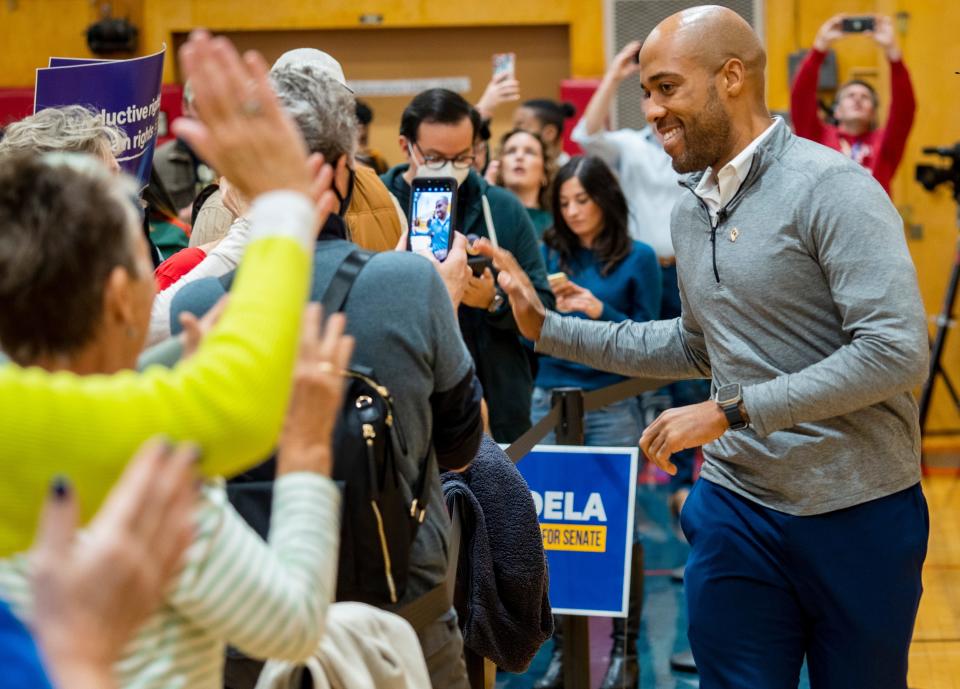
'All gas, no brakes' on student support
With about 500 young volunteers organizing events and actions, students are one of the Barnes campaign's largest coalitions, said Nina Harris, coalitions director for the Barnes campaign.
"It is really all gas, no brakes right now," Harris said.
The campaign on Oct. 24 launched a 100-stop bus tour, during which Barnes plans to stump at six University of Wisconsin campuses statewide, including in Madison and Milwaukee.
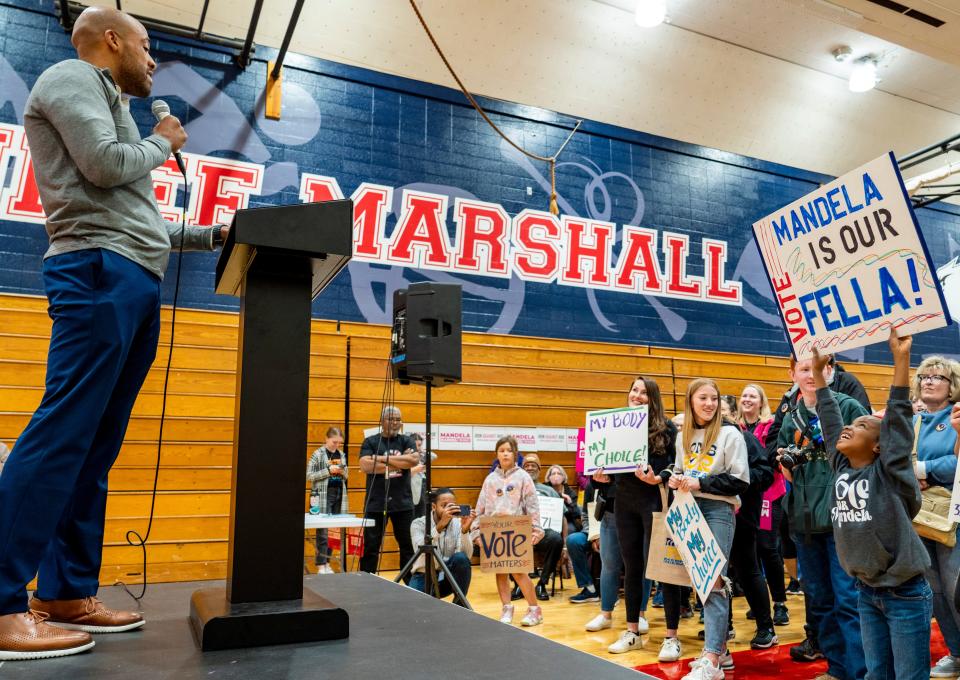
But joining a rally doesn't necessarily translate to casting a ballot, the campaign acknowledged. To bolster turnout, Barnes will "Pedal to the Polls" with students after the campus rallies, biking from the rally locations to nearby polling locations while local elected officials cheer them on from the sidelines.
"A lot of people feel disconnected from politics, politicians and government in general," Barnes said. "We) want people to know that elected officials are supposed to be there to answer calls, to take in the concerns and to do something about it."
Simultaneously, the Barnes campaign has engaged Wisconsin college campuses by having "dorm captains" door-knock for Barnes in student housing, where access is limited to students only, and having resident advisers and professors distribute voting information in classes, online and in dorms.
Johnson's campaign, with help from the state GOP and Republican youth groups, have employed similar tactics in the days leading up to the election, according to Mike Marinella, Johnson's press secretary.
"As young Wisconsinites are making the transition to live on their own, inflation and crime have increasingly become a top issue for young people, especially in cities like Milwaukee and Madison," Marinella said in an emailed statement.
Wisconsin Senate race: 5 takeaways from Wisconsin Sen. Johnson, Barnes debate
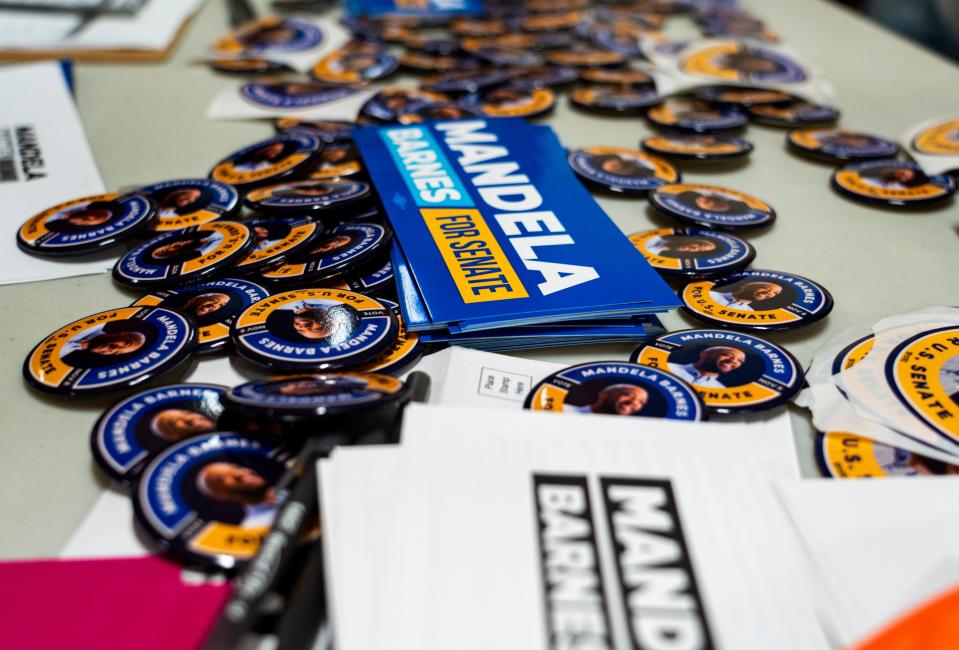
Race remains close
With a week until the election, Johnson is polling ahead of Barnes by more than 4 percentage points, according to an average of recent polls by analysis site FiveThirtyEight. The pivotal race has remained close throughout the election season as the candidates continue to poll within the margin of error.
The race was thought to be Barnes' to lose, with Johnson widely regarded as the most at-risk GOP incumbent in the country.
Johnson "has never been a terribly popular U.S. senator here in Wisconsin," said Thomas Holbrook, a political science professor at the University of Wisconsin, Milwaukee. "It's not like people overwhelmingly dislike him, but coming into this race, he was viewed as vulnerable."
A deluge of negative advertisements from Johnson and conservative groups targeting Barnes' record and positions on issues like crime and inflation probably gave the Republican a boost, said Barry Burden, director of the University of Wisconsin-Madison's Elections Research Center.
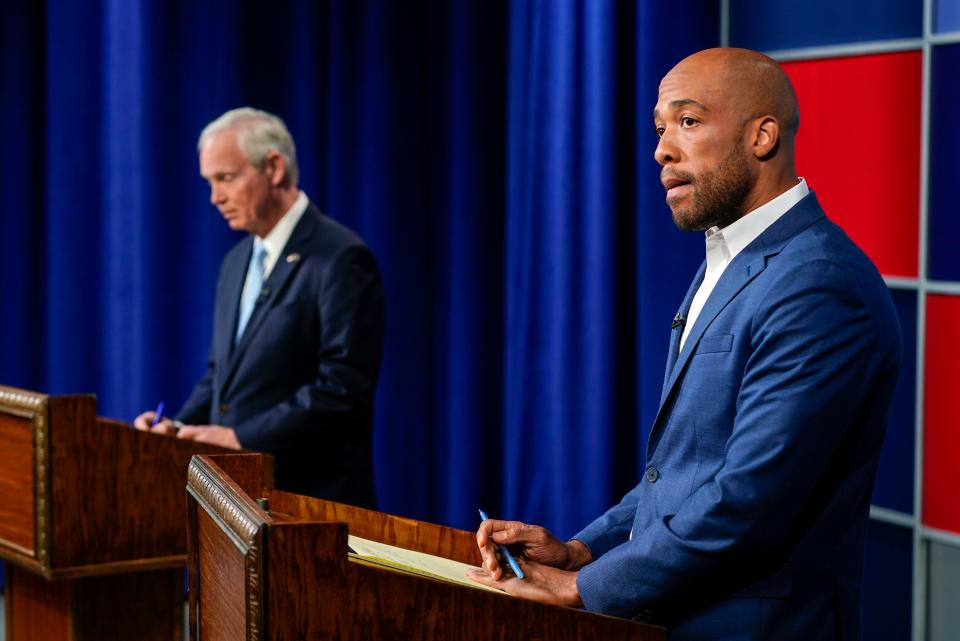
Since the August primary and through Election Day, Republicans and their allies have either spent or booked $48 million in TV ads in Wisconsin, and Democrats have either spent or booked $43.5 million, according to figures from AdImpact, a political ad tracking firm.
"It's really put (Barnes) on the defensive," Burden said. "On the air, he was outgunned.”
President Joe Biden's low approval ratings also could have played a part in Johnson's resurgence, Holbrook said.
Marinella, Johnson's spokesperson, and Chad Doran, communications director for the Republican Party of Wisconsin, cited Biden as a reason young voters might steer clear of Barnes.
Young voters "know Biden's economic policies are supported by Tony Evers and Mandela Barnes, and they feel how rising costs and shrinking paychecks are impacting their buying power and their quality of life," Doran said in response to USA TODAY's request for comment.
Though big-name politicians like former President Barack Obama and Pete Buttigieg, U.S. secretary of transportation and a 2020 Democratic presidential candidate, stumped for Barnes last week, Biden has notably steered clear of the campaign trail.
"It's the old proverb – a rising tide lifts all boats, a sinking tide lowers all boats," Holbrook said. "And it really is that way. In years when presidents are relatively popular, candidates from their party do fairly well. In years where the president's not very popular, candidates and their party struggle – even in a case like Wisconsin, where again, Johnson was seen as one of the most vulnerable Republican candidates.
"This is a really good time for a vulnerable Republican candidate to be running," Holbrook added.
Senate races to watch: Midterm election races will determine who controls the Senate: Here are eight we're watching
Will young people decide the race?
In 2020, Biden won voters under 29 by 19% in the Badger State, a considerable increase from 2016 when Democrat Hillary Clinton carried that age group by 3%, according to an analysis by the Center for Information and Research on Civic Learning and Engagement (CIRCLE) at Tufts University.
Young voters made up 14% of all Wisconsin voters in the last general election – and turnout is usually worse during midterms.
"It is just so hard to increase turnout among young people, unless turnout is increasing among everybody else," Holbrook said.
But in Wisconsin, it’s not a long shot that young voters could decide the state’s key races.
“Young people absolutely have the potential to change the election dramatically,” said Abby Kiesa, CIRCLE's deputy director.
Wisconsin’s Senate race ranks fifth in CIRCLE’s Youth Electoral Significance Index, which calculates where young people have a high likelihood of influencing election results. The state’s governor’s race ranks first.
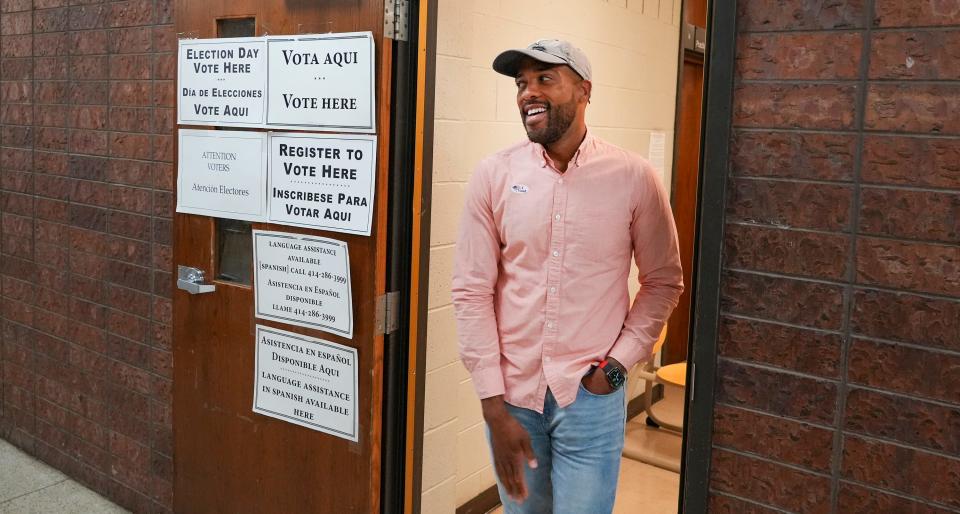
That’s largely thanks to policies that make it easier for young people to vote and strong electoral engagement throughout the state, Kiesa said.
“There's historical inertia when it comes to turnout,” she said. “If you're in a state where a lot of people are turning out, that turnout creates more of a norm that people are engaged. States that have higher youth turnout are more likely to keep that higher youth turnout because of that.”
To win the race, it’s “probably necessary” for young people to turn out in Barnes’ favor, Burden said, alongside voters of color.
“Those things are related,” he added. “Young voters are more diverse than older voters.”
This article originally appeared on USA TODAY: Wisconsin Senate race: Barnes, Johnson seek young voter support

